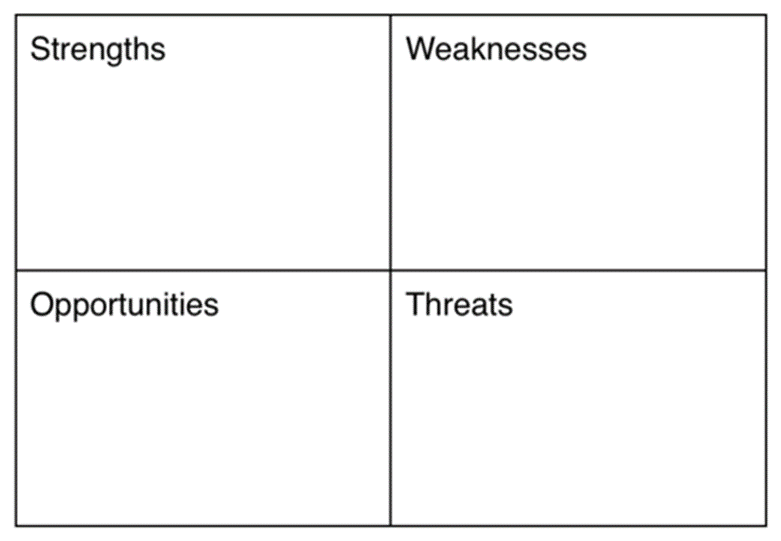As a holistic practitioner, providing exceptional patient care is likely your top priority. However, managing the administrative side of your practice is just as crucial to your success. One key aspect of practice management is efficient patient scheduling and appointment reminders. In this blog post, we’ll discuss the importance of these elements in your holistic practice, focusing on the often-overlooked cost of missed appointments and how to minimize these occurrences to deliver the best possible care to your patients.
The Financial Impact of No-Shows and Late Arrivals
Missed appointments are a significant issue for healthcare providers, costing the industry billions of dollars annually. According to a study published in BMC Health Services Research, the average cost of a missed appointment in the United States is approximately $97-$200. This can quickly add up for a small holistic practice, negatively impacting revenue and profitability. Implementing an efficient patient scheduling system and sending appointment reminders can significantly reduce no-shows and late arrivals, helping to protect your practice’s bottom line.
Enhancing Patient Satisfaction and Retention
Proper patient scheduling and appointment reminders can lead to a more organized and smoothly running practice, improving patient satisfaction. Patients who experience a seamless check-in process, reduced waiting times, and timely reminders are more likely to perceive your practice as professional, reliable, and caring. This enhanced satisfaction can lead to increased patient retention, with one study showing that a 3% increase in patient retention can result in a 25% increase in profit.
Streamlining Practice Management and Resource Allocation
Efficient patient scheduling helps you manage your practice more effectively by allowing you to allocate resources, including staff and treatment rooms, more strategically. With a well-organized schedule, you can better anticipate busy periods, avoid overbooking, and ensure you have enough time to provide quality care to each patient.
Reducing Administrative Burden and Costs
Automated appointment reminders can save your staff time and effort that would otherwise be spent manually contacting patients to confirm appointments. Reducing administrative workload can free up your team to focus on other important tasks, such as patient care, billing, and practice growth, ultimately contributing to cost savings for your practice.
Maximizing Revenue and Patient Referrals
By implementing a reliable patient scheduling system and sending appointment reminders, you can minimize lost revenue due to missed appointments. Additionally, a well-managed scheduling process can increase patient referrals, as satisfied patients are more likely to recommend your services to their friends and family.
Incorporating efficient patient scheduling and appointment reminders into your holistic practice’s daily operations can bring numerous benefits, including improved patient satisfaction, streamlined practice management, and increased revenue. Investing in the right tools and strategies for your scheduling process can minimize the costly impact of missed appointments and ensure that your practice runs smoothly, allowing you to focus on providing the best care possible to your patients.
At Holistic Billing, we understand the importance of efficient practice management for holistic practitioners. Holbie, our online platform, offers easy-to-use scheduling and appointment reminder features tailored to acupuncturists, chiropractors, and massage therapists’ unique needs. To learn more about how Holbie can help you optimize your practice and reduce missed appointment costs, contact us today.
For many integrative healthcare practitioners, navigating the complexities of insurance billing can be a significant challenge. However, understanding how to master insurance billing is crucial to your practice’s financial success and growth. This blog post will discuss essential tips and strategies to help acupuncturists, licensed massage therapists, and chiropractors overcome common insurance billing obstacles and streamline their revenue cycle management.
Understand the Basics of Insurance Billing
The first step in mastering insurance billing is familiarizing with the basic concepts and terminology. Key terms to understand include:
- CPT Codes: Current Procedural Terminology codes describe medical procedures and services healthcare providers perform.
- ICD-10 Codes: International Classification of Diseases codes are used to classify and code diagnoses.
- Provider Network: The group of healthcare providers contracted or participating with an insurance company to provide services to their members.
- Reimbursement: The payment received by a healthcare provider from an insurance company for services rendered.
- Explanation of Benefits (EOB): A document sent by the insurance company to the patient and provider detailing the services provided, the amount billed, and the amount paid by the insurance company.
Verify Patient Insurance Eligibility
Before providing services, verifying each patient’s insurance eligibility and benefits is essential. This includes checking for coverage details such as deductibles, copayments, and any limitations or exclusions. Verifying eligibility upfront helps prevent denied claims and ensures that you have accurate information about the patient’s insurance benefits.
Keep Accurate and Detailed Documentation
Proper documentation is crucial to the insurance billing process. Ensure that your patient records are thorough, accurate, and up-to-date, including the patient’s demographic information, insurance details, and relevant medical history. Document the services provided using the appropriate CPT and ICD-10 codes for each visit. Accurate documentation helps prevent claim denials and protects your practice during audits or disputes.
Stay Up-to-Date with Billing Regulations and Payer Requirements
Insurance billing regulations and payer requirements are constantly evolving. To ensure that your practice remains compliant, stay informed about changes in billing rules, coding updates, and any changes to payer-specific guidelines. Resources such as industry newsletters, webinars, and professional associations can help you stay informed and up-to-date.
Invest in Practice Management Software and Billing Services
Investing in practice management software, like Holbie, can help streamline your revenue cycle management and master insurance billing by automating tasks such as patient registration, appointment scheduling, and claims submission. Holbie also offers a comprehensive insurance billing service, which can save you time and resources by handling the entire billing process on your behalf, from claim submission to payment follow-up.
Monitor and Track Your Billing Performance
Regularly monitoring and tracking your billing performance is crucial to identifying areas for improvement and ensuring the financial health of your practice. Review key performance indicators (KPIs) such as claim denial rates, days in accounts receivable, and the percentage of revenue collected. By analyzing your billing data and identifying trends, you can make informed decisions about your practice’s billing processes and revenue cycle management.
Mastering insurance billing is essential for the success of your integrative healthcare practice. By understanding the basics, verifying patient eligibility, maintaining accurate documentation, staying informed about regulations, investing in practice management software or billing services, and monitoring your billing performance, you can streamline your revenue cycle management and focus on providing exceptional patient care.
How does this apply to a billing business that specializes in medical-massage, acupuncture, and chiropractic billing? You do not need to spend all your time on the time-consuming and challenging medical coding and billing procedure while you are occupied filling your schedule. Your time, energy, and creativity are freed up to concentrate on what matters most: your patients by having a reputable company like Holistic Billing Services handle your online appointments, SOAP notes, or your medical billing burden. The welcoming professionals at HBS have years of experience and are glad to support you in EHR and medical billing success! Get in touch with us to create a unique solution that meets the demands and objectives of your practice.
As integrative healthcare practitioners, you know the importance of providing personalized, holistic care to patients. You understand that physical, emotional, and environmental factors influence your patient’s health. You need a system that enables you to efficiently document, manage, and track your patient’s health information. Enter electronic health records (EHRs).
What Are Electronic Health Records (EHRs)?
Electronic health records (EHRs) are digital versions of traditional paper-based patient charts. They store a patient’s medical history, treatment plans, diagnostic information, and more. By replacing paper records with digital ones, EHRs can significantly improve healthcare practices’ efficiency and enhance patient care quality.
Benefits of Electronic Health Records for Integrative Healthcare Practitioners
For practitioners in the fields of acupuncture, massage therapy, and chiropractic care, adopting an EHR system can bring a wide range of benefits:
- Improved Documentation: EHRs provide a consistent, structured format for documenting patient information, making it easier to keep track of treatment plans, progress notes, and other essential data. This can help to reduce errors in patient records.
- Streamlined Communication: EHRs facilitate seamless communication between practitioners and other healthcare providers. By securely sharing patient information, practitioners can coordinate care more effectively, ensuring patients receive the most appropriate treatments and interventions.
- Enhanced Decision-Making: EHRs can provide practitioners with a comprehensive view of a patient’s health history, allowing them to make more informed decisions about their care. This can be particularly valuable for integrative healthcare practitioners who often need to consider various factors when developing treatment plans.
- Increased Efficiency: EHRs can significantly reduce the time spent on administrative tasks, such as updating patient records, scheduling appointments, and processing insurance claims. This allows practitioners to focus more on patient care and less on paperwork.
- Data Security and Compliance: EHRs can help practitioners protect patient information through encryption and secure access controls, ensuring that sensitive data remains confidential. In addition, EHR systems can help practitioners stay compliant with industry regulations, such as HIPAA, by providing tools to manage patient consent and track data access.
Choosing the Right EHR System for Your Practice
When selecting an EHR system, it’s essential to choose one tailored to your specific practice’s needs. For integrative healthcare practitioners, this means finding an EHR system that supports your unique treatment modalities and offers features that enhance your workflow.
Here are some factors to consider when choosing EHR systems:
- Interoperability: Choose an EHR system that can integrate with other healthcare systems and software, such as practice management tools and billing services. This will enable you to streamline your practice’s operations and improve communication with other providers.
- Ease of Use: It’s crucial to select an EHR system that’s user-friendly and easy to learn. This can minimize the learning curve for you and your staff, ensuring a smooth transition to the new system.
- Scalability: As your practice grows and evolves, your EHR system should be able to grow with you. Look for a system that can accommodate additional users, locations, and services as needed.
By adopting an EHR system tailored to integrative healthcare practices, you can experience many benefits that help you provide the highest quality care to your patients. Let’s explore some additional aspects of EHR systems that can support your practice.
Analytics and Reporting
By aggregating and analyzing patient data, EHR systems can provide valuable insights into your practice’s performance. With reporting capabilities, you can track important metrics, such as patient demographics, appointment trends, and revenue sources. These insights can help you make informed decisions about marketing, staffing, and service offerings to ensure your practice’s continued growth and success.
In addition, EHR systems can help you monitor clinical outcomes and identify patterns in patient care. This information can be used to refine your treatment approaches, implement quality improvement initiatives, and demonstrate the effectiveness of your services to patients, insurance companies, and other stakeholders.
Training and Support
When implementing a new EHR system, it’s essential to have access to comprehensive training resources and ongoing support. EHR vendors should provide thorough training materials, such as tutorials, webinars, and user guides, to help you and your staff get up to speed quickly. In addition, they should offer responsive customer support to address any questions or issues that may arise during the implementation process and beyond.
Cost and Return on Investment
Finally, it’s essential to consider the cost of implementing an EHR system and the potential return on investment (ROI) for your practice. While upfront fees may be associated with purchasing and setting up the system, look for systems with minimal up-front costs, however, the long-term benefits can far outweigh these expenses. Improved efficiency, reduced errors, and enhanced patient care can lead to increased patient satisfaction and retention and potential revenue growth.
When evaluating EHR systems, consider factors such as subscription fees, hardware requirements, and additional training or support costs. It’s also helpful to compare the prices and features of various EHR systems to find the best fit for your practice’s needs and budget. Adopting an EHR system tailored to the needs of your integrative healthcare practice can significantly enhance your ability to provide personalized, high-quality care to your patients. By carefully considering the features, functionality, and support offered by different EHR systems, you can choose the right solution to help your practice thrive now and in the future.
How does this apply to a billing business that specializes in medical-massage, acupuncture, and chiropractic billing? The time-consuming and challenging procedure of medical coding and billing does not need to take up your time when you are occupied filling your schedule. Your time, energy, and creativity are freed up to concentrate on what matters most: your patients, by delegating your online appointments, SOAP notes, or medical billing load to a reputable company like Holistic Billing Services. The helpful professionals at HBS are glad to support you in EHR and medical billing success and have decades of experience. To begin creating a unique solution that meets the needs and objectives of your acupuncture clinic, get in touch with us right now.
We have offered holistic providers complete medical billing and coding services since 1999, so we understand what makes medical billing and coding successful. In this article, we share our knowledge to assist you in selecting the best service for your medical practice.
Medical coding and billing are crucial components of any healthcare operation. It guarantees rapid and accurate claim processing, which results in quick reimbursements and improved revenue cycle management. The effectiveness and profitability of your clinic can be considerably impacted by your choice of medical billing and coding company, which can be challenging. This article will review the essential medical billing and coding service elements. In addition, we’ll also share tips on how to find the best fit for you.
Knowledge and Skills
Experience and industry knowledge are the most critical factors when selecting a medical billing and coding service. Please search for a business with a successful track record and extensive expertise working with medical practices like yours; this helps to ensure that they know the particular difficulties faced by your practice and have the knowledge and tools necessary to address them.
Security and Compliance
The field of medical coding and Billing is very regulated. Selecting a service that prioritizes adherence to pertinent healthcare laws, including the Health Insurance Portability and Accountability Act (HIPAA), is crucial. Be sure the business you choose maintains stringent security measures to guard sensitive patient data from data breaches and illegal access.
Flexibility and Personalization
Your billing and coding provider should be able to adjust to your particular demands because every medical practice is different. To create a customized solution for your practice’s billing and coding needs, look for a provider that offers customizable solutions and will collaborate closely with your staff.
Automation
A professional medical billing and coding service should use the most up-to-date technology to optimize revenue collection, speed up the billing process, and decrease errors. Faster claim processing and more precise reimbursements will result from this. To increase productivity and reduce manual input, look for a company that uses software and automation whenever possible.
Pricing and Contract Terms
Considering the price and contract details when assessing billing and coding services is critical. In addition to their fees, which are typically based on a percentage of collections, you should carefully read the contract terms to comprehend the range of services offered, the method of payment, and any potential penalties or termination clauses. Seek transparent pricing models with no hidden costs that fit your practice’s budget.
Customer Support and Responsiveness
When it comes to billing and coding, excellent customer support is essential. You want a business that will address your needs and problems. To receive individualized support and guidance through the billing process, look for a service that provides dedicated account management or a point of contact.
Testimonials
One of the best methods to evaluate a medical billing and coding service’s success is to look at client references. Choose a business with a good reputation. As the saying goes, past performance is the best indicator of future performance. A more excellent grasp of their track record and assistance in making an informed choice will come from their business references.
Ongoing Support
A good medical billing and coding firm should also offer continuing training and assistance to your employees, so they stay informed about changes in the field and best practices. Regular updates on coding standards, educational webinars, or specialized training events fall within this category.
Six Pointers to Help You Choose the Best Medical Coding and Billing Company
Here are some suggestions to help you choose the best medical billing and coding service for your clinic now that you are aware of the elements to take into account:
Research
Start by researching the many medical billing and coding services that are offered. Search for suppliers with expertise dealing with comparable businesses or specializing in your specialty. Compile a shortlist of prospects based on their qualifications, knowledge, and client testimonials.
Compare
Request proposals from the vendors you are considering. Use the proposals to compare each company’s services and reduce your candidates. Information about their services, price, technological solutions, and compliance procedures should all be included in a thorough presentation.
Schedule
Make appointments to speak with the leading candidates on your list before deciding. Ask them about their background, offerings, and how they may assist your practice in streamlining its billing and coding procedures during these encounters. Please take advantage of the chance to evaluate their receptivity, communication abilities, and willingness to adapt their services to your demands.
Check
Make an effort to reach out to the clients listed on the references provided by each prospective organization. You’ll be able to learn directly about their effectiveness, customer service, and general experience.
Evaluate
Understanding the vendor’s onboarding procedure is crucial because switching to a new medical billing and coding service can be difficult. Analyze their capacity to work with your current systems, impart knowledge to your personnel, and offer continuing assistance during the transition.
Consider
It’s crucial to consider a medical billing and coding service’s long-term profitability while making your choice; this entails assessing its financial standing, room for expansion, and resolve to keep up with market developments. A strong and progressive organization will likely support the long-term success of your practice.
Conclusion
Your choice of medical billing and coding provider can dramatically impact the effectiveness and profitability of your practice. You may find a provider who meets your needs and aids in the optimization of your revenue cycle management by considering variables like experience, compliance, technology, and cost. Take your time with the decision-making process; instead, consider each prospective provider before selecting the best fit for your practice’s particular needs.
How does this relate to an EHR and insurance billing company focused on acupuncture, chiropractic, and medical-massage billing? While you are busy vetting other vendors, your time can be free of tedious technology or complicated medical coding and billing process. By letting the best firm focused on integrative healthcare Holistic Billing Services handle your online appointments, SOAP notes, or medical billing needs, your energy, creativity, and talents are freed up to focus on identifying and serving your patients. The friendly experts at Holistic Billing have over 20 years of experience and are eager to help you succeed in EHR and Medical Billing! Contact us today to get started building a solution that suits your acupuncture practice needs and goals.
Outsourcing medical billing and coding is becoming popular for many healthcare providers, including acupuncturists, chiropractors, and licensed massage therapists. With the ever-increasing complexity of healthcare regulations, the time-consuming administrative tasks involved in medical billing and coding, and the need for greater accuracy, outsourcing has emerged as the most practical and cost-effective solution for holistic and integrative medicine providers. This blog will discuss the benefits of outsourcing medical billing and coding for this healthcare segment.
Improved Revenue Cycle Management
Outsourcing medical billing and coding to a third-party provider can help ensure claims are submitted accurately and on time; this can help practitioners avoid payment delays and reduce the number of denied claims.
Reduced Administrative Burden
Whether you are an acupuncturist, chiropractor, or massage therapist, you already have too much on your plate, including patient care, medical research, and teaching. With the added responsibility of medical billing and coding, you are likely overburdened and find it challenging to manage your workload effectively. Outsourcing medical billing and coding can help alleviate this burden by freeing up your time and allowing you to focus on other core responsibilities.
Access to Expertise
Medical billing and coding are highly specialized skills that require specialized training and experience, which most providers do not have. The benefits of outsourcing billing and coding to a third-party provider gives your practice access to a team of experts, up-to-date with the latest changes in healthcare regulations and coding guidelines; this ensures that claims are processed accurately, resulting in fewer payment delays and denied claims.
Cost Savings
Outsourcing medical billing and coding can also help you save money. Hiring and training a dedicated billing and coding staff can be expensive. Maintaining a billing and coding department can add up quickly. Outsourcing can reduce these costs by eliminating the need for additional staff and technology infrastructure.
Increased Efficiency
Medical billing and coding can be time-consuming and tedious tasks. Outsourcing can help you streamline these processes. Third-party providers have specialized tools and strategies designed to maximize productivity and accuracy; this results in faster processing times, fewer errors, and increased revenue.
Improved Compliance
Billing and coding regulations are constantly changing, and healthcare providers must stay up-to-date with these changes to ensure compliance. Outsourcing to a billing company can help you comply with regulations and avoid costly penalties. Ensure your billing service has dedicated compliance teams to stay up-to-date with the latest rules and guidelines.
Improved Patient Experience
Outsourcing your billing can also positively impact the patient experience. Accurate billing and coding make patients less likely to receive unexpected bills or be charged for services not provided; this can help improve patient satisfaction and increase hospital or healthcare provider loyalty.
In conclusion, outsourcing medical billing and coding can benefit hospitalist physicians. From improved revenue cycle management to increased efficiency and cost savings, outsourcing can help hospitalist physicians focus on patient care and core responsibilities while ensuring accurate and timely payment for services rendered. With the ever-changing landscape of healthcare regulations, outsourcing medical billing and coding can help hospitalist physicians stay compliant and avoid costly penalties. Outsourcing is a practical, cost-effective solution to help hospitalist physicians improve their bottom line and provide better patient care.
Transform Your Billing and Coding with Holistic Billing
How does this relate to electronic medical records and Holistic Billing? While you are busy building up your practice’s visibility, your time does not need to be consumed by tedious technology or the complicated medical coding and billing process. By letting the best firm focused on integrative healthcare Holistic Billing handle your online appointments, SOAP notes, or medical billing needs, your energy, creativity, and talents are freed up to focus on identifying and serving your patients. The friendly experts at Holistic Billing have over 20 years of experience and are eager to help you succeed in EHR and Medical Billing! Contact us today to get started building a solution that suits your acupuncture practice needs and goals.
As an acupuncturist, you want your practice to be easily found by patients. Most patients seeking acupuncture services will search for practitioners near their homes. Search Engine Optimization (SEO) can help you improve your online visibility and page ranking. Below are tips to improve your online ranking and the top 10 search terms you want to target in Google for your acupuncture practice.
Conduct Keyword Research
First, identify what keywords people type when searching for acupuncture services. Keywords are the phrases that people use to search for information online. Here are the top 10 most searched phrases related to acupuncture:
- Acupuncture Near Me
- Does Acupuncture Work
- Acupuncture Benefits
- Acupuncture Points
- Acupuncture for Anxiety
- Acupuncture for Weight Loss
- Acupuncture for Fertility
- Acupuncture for Migraines
- Acupuncture for Back Pain
- Cupping Therapy
Using keyword tools such as Google Keyword Planner, SEMrush, or Ahrefs can help you find other popular keywords for your acupuncture practice. Use these keywords to tailor your website’s design and content. However, avoid stuffing keywords unnaturally, as it can lead to a negative user experience and ranking penalties from search engines.
Optimize Your Website’s Design
You can optimize your website for both search engines and overall user experience; this means making sure that it is mobile-friendly, fast-loading, and has an easy-to-navigate structure. A good rule of thumb is if your website takes over three seconds to load, most users will leave and go elsewhere. You can use Google’s PageSpeed Insights or GTmetrix to test your website speed and identify any issues. Additionally, installing an SSL certificate should ensure your website is secure; this helps build trust with your users and improves your website’s ranking on search engines.
Implement Local SEO Strategies
Acupuncture practices typically will serve people in a specific geographical location. So, you’ll need to use local SEO strategies to improve your visibility in the local search results. Here are some strategies to consider:
- Create a Google My Business profile: This free tool allows you to create a business listing on Google Maps and the local search results. Ensure that your business name, address, and phone number are accurate and consistent across all platforms.
- Getting listed on local directories: Some popular local guides include Yelp, YellowPages, and Citysearch. Double-check that your business information is accurate and consistent across all of these.
- Creating location-specific content: Create blog posts, videos, or infographics focusing on acupuncture topics specific to your location. For instance, it can be as simple as if you’re in Los Angeles, and you can create content on “acupuncture for stress in Los Angeles.”
Use Social Media
Social media is a cost-efficient way to build your online presence, so optimize your social media profiles for search engines. Remember to use your acupuncture practice’s name and location, include your business information in all your posts, and continuously engage followers or anyone who leaves comments.
Use Video Content
You can use video content to showcase your acupuncture practice and explain techniques. Also, could you create video testimonials from your satisfied patients? This type of content can improve your website’s ranking on search engines and attract potential patients.
Track Your Progress
You’ll need to track your SEO progress regularly to ensure your efforts pay off. Tracking your progress involves monitoring your website’s ranking on search engines, website traffic, and other metrics that show your website’s performance; this helps you identify areas where you need to improve and refine your SEO strategies to help your acupuncture practice rank #1 on Google
You can use several tools to track your progress, such as Google Analytics, Google Search Console, Console, Ahrefs, SEMrush, and Moz. These tools can provide valuable insights into your website’s performance, such as the number of visitors, page views, bounce rate, click-through rate, and backlinks. Using these tools, you can identify which keywords drive traffic to your website, which pages are performing well, and which ones need improvement. You can also monitor your website’s loading speed and fix any issues affecting your website’s performance. Remember, improving your website’s Google ranking with SEO is a long-term process that requires patience and persistence. It may take time to see the results of your efforts, but with a solid strategy and consistent effort, you will improve your practice’s visibility on search engines and increase your patient volume.
How does this relate to an EHR and insurance billing company focused on acupuncture, chiropractic, and medical-massage Billing? While you are busy building up your practice’s online visibility, your time does not need to be consumed by tedious technology or the complicated medical coding and billing process. By letting the best firm focused on integrative healthcare Holistic Billing Services handle your online appointments, SOAP notes, or medical billing needs, your energy, creativity, and talents are freed up to focus on identifying and serving your patients. The friendly experts at Holistic Billing have over 20 years of experience and are eager to help you succeed in EHR and Medical Billing! Contact us today to get started building a solution that suits your acupuncture practice needs and goals.
A competitive analysis SWOT (Strengths, Weaknesses, Opportunities, Threats) is a strategic tool that helps businesses understand their competitive landscape and identify key focus areas to improve their overall performance. As the holistic medicine industry continues to grow and evolve, it is crucial for holistic medicine practices to regularly conduct a competitive analysis SWOT to stay ahead of your competition and attract more patients. This blog will discuss the steps you can take to create a competitive analysis SWOT for your holistic medicine practice.
Step 1: Research, Your Competitors
The first step in creating a competitive analysis SWOT is researching your competitor; this includes understanding their strengths, weaknesses, opportunities, threats, overall business model, target market, and marketing strategies. You can research other practices by looking at their websites, social media profiles, online reviews, and additional relevant information. You can also reach out to your existing patients and ask for their opinions on your competitors. You can also attend trade shows and events related to the holistic medicine industry to understand your competitors’ offerings and strategies better.
Step 2: Identify Your Strengths and Weaknesses
Once you have completed your competitor research, you can identify your strengths and weaknesses. Your strengths might include a strong reputation, experienced practitioners, a wide range of modalities and services, or a commitment to sustainability. On the other hand, your weaknesses might include a limited number of practitioners, a lack of investment in marketing and advertising, or a limited number of treatment rooms.
Step 3: Identify Opportunities and Threats
Next, you can start identifying the opportunities and threats in the holistic medicine market. Possibilities might include an increasing demand for holistic treatments, a growing awareness of the benefits of holistic medicine, or the opportunity to expand into new markets. Threats might include increased competition, government regulation changes, or declining insurance billing payments.
Step 4: Develop a SWOT Matrix
Once you have identified strengths, weaknesses, opportunities, and threats, you can develop a SWOT matrix. This visual representation of your SWOT analysis helps you see the relationships between the different elements. To create a SWOT matrix, you can use a simple table with four columns: Strengths, Weaknesses, Opportunities, and Threats. You can then start to fill in each column with the information you have gathered in your research.

Step 5: Use Your SWOT Analysis to Develop a Strategic Plan
Once you have completed your SWOT matrix, you can use the information to develop a strategic plan. This plan should include specific goals and strategies to help you address your strengths, overcome weaknesses, take advantage of opportunities, and mitigate threats. For example, suppose you have identified a lack of investment in marketing and advertising as a weakness. In that case, your strategic plan might include investing in a new marketing campaign to raise awareness of your services to companies in the vicinity of your practice. If you have identified increased competition as a threat, your strategic plan might include expanding your services to differentiate yourself from your competitors.
Step 6: Monitor and Update Your SWOT Analysis
Finally, it’s essential to monitor and update your SWOT analysis regularly; this will help you stay on top of market changes and ensure that your strategic plan is still relevant and practical. For example, suppose you have identified an increasing demand for acupuncture treatments as an opportunity. You may want to check regularly if this trend continues and consider investing in new treatments or services to take advantage of the opportunity.
In conclusion, a competitive analysis SWOT is an essential tool for holistic medicine practices to understand their competitive landscape and improve their overall performance. By researching your competitors, identifying your strengths and weaknesses, and identifying opportunities and threats, you can develop a strategic plan that addresses your key focus areas. Regularly monitoring and updating your SWOT analysis will also help you stay on top of changes in the market and make sure that your strategic plan remains relevant and practical. By regularly conducting a competitive analysis SWOT, you can stay ahead of the competition and attract more patients to your holistic medicine practice.
It’s important to note that a competitive analysis SWOT is just one tool in a holistic approach to business strategy. It would be best to consider other strategic tools such as market research, patient surveys, and financial analysis to understand your business and develop a comprehensive strategy fully. By taking a comprehensive approach to your business strategy, you can make informed decisions, improve your overall performance, and achieve your goals for your holistic medicine practice.
How does this relate to an EHR and insurance billing company focused on acupuncture, chiropractic, and medical-massage Billing? While you are busy creating your business and marketing plans, your time does not need to be consumed by tedious technology or complicated medical coding and billing process. By letting the best firm focused on integrative healthcare Holistic Billing Services handle your online appointments, SOAP notes, or medical billing needs, your energy, creativity, and talents are freed up to focus on identifying and serving your patients. The friendly experts at Holistic Billing have over 20 years of experience and are eager to help you succeed in EHR and Medical Billing! Contact us today to get started building a solution that suits your acupuncture practice needs and goals.
Integrative healthcare is a growing trend in the healthcare industry as more people seek holistic and natural solutions to their health problems. One of the most popular integrative healthcare practices is acupuncture, which has been used for thousands of years to treat various health conditions. As an acupuncture practice focusing on integrative healthcare, it is crucial to understand your target patients and their needs and pain points. This information will help you create a buyer’s persona, a fictional representation of your ideal customer, informing all aspects as you develop your marketing plan.
What is a Buyer’s Persona?
A buyer’s persona represents your ideal patient based on your market research and actual data about your existing customers. It is a valuable tool for marketing because it helps you understand your target audience’s needs, behaviors, motivations, and pain points. By creating a buyer persona, you can make a personalized marketing strategy that speaks directly to your ideal customer and addresses their specific needs.
Steps to Creating a Buyer Persona
Gather data
The first step in creating a buyer’s persona is to gather data about your existing customers. The data should include the customer’s age, gender, income, education level, occupation, location, pain points, and health concerns. Obtain this data through surveys, customer interviews, personal experience, and website analytics.
Analyze the Data
Once you have gathered the data, try identifying patterns and shared characteristics among your customers. Look for trends and similarities in the demographic data or motivations, and use this information to create your ideal customer profile.
Create the Buyer Persona
Create the representation of your ideal customer based on the information you have gathered and analyzed. Give your buyer’s personal a name, age, gender, occupation, location, and other relevant information. Ensure to include information about their pain points, health concerns, and motivations for seeking your style of integrative healthcare.
Define the Pain Points
Pain points are the problems or challenges your ideal customer is trying to solve. Understanding their pain points is one of the most critical aspects of your buyer persona. They are the reasons why they are seeking integrative healthcare solutions. Understanding their pain points can create a marketing strategy that addresses these issues and offers solutions.
Determine the Motivations
Another vital aspect of your buyer’s persona is understanding their motivations for seeking integrative healthcare solutions. What drives them to seek out acupuncture or other holistic treatments? Are they looking for honest answers to their health problems? Are they seeking to improve their overall health and wellness? By understanding their motivations, you can create a marketing strategy that directly addresses their needs, anxieties, and desires.
Example of a Buyer Persona for an Acupuncture Practice Focusing on Integrative Healthcare
Meet Sarah, a 45-year-old working mother who lives in the suburbs. Sarah is a busy professional who is always on the go, looking for ways to improve her health and wellness. She is motivated by her desire to feel better and to have more energy to keep up with her busy life. She is looking for natural and holistic solutions to her health problems and is particularly interested in acupuncture.
Sarah has been experiencing pain and discomfort in her lower back and neck, and she is looking for a natural solution to help her manage her pain and improve her overall health and wellness. Sarah is also tired of taking medications she doesn’t trust and welcomes anything that will lead to fewer pills and fewer side effects. She is motivated by her desire to feel better and to have more energy to keep up with her busy life. Sarah is the ideal customer for an acupuncture practice focusing on integrative healthcare near her home.
How does this relate to an EHR and insurance billing company focused on acupuncture, chiropractic, and medical-massage Billing? While you are busy creating your business and marketing plans, your time does not need to be consumed by tedious technology or complicated medical coding and billing process. By letting a firm focused on integrative healthcare like Holistic Billing Services handle your online appointments, SOAP notes, or your medical billing needs, your energy, creativity, and talents are freed up to focus on identifying and serving your patients. The friendly experts at Holistic Billing have over 20 years of experience and are eager to help you succeed in EHR and Medical Billing! Contact us today to get started building a solution that suits your acupuncture practice needs and goals.
When owning a holistic practice, one of the most important things to consider is how to handle insurance billing; this can be tricky and time-consuming, but ensuring that your patients receive the reimbursement they are entitled to is essential. As a holistic practitioner, choosing an insurance biller who understands the unique needs of your practice, whether it be acupuncture, chiropractic, or medical massage, can help you navigate the complex world of insurance billing. This blog post will discuss critical factors on how to pick an insurance biller for your holistic practice covering acupuncture, chiropractic, or a medical massage practice.
Experience and Expertise
One of the most important things to consider when choosing an insurance biller is their experience and expertise in your field. Each type of holistic practice has its unique billing requirements and codes, so it is essential to choose an insurance biller who is familiar with the ins and outs of your field. For example, suppose you run an acupuncture practice. In that case, you will want to choose an insurance biller who has experience with acupuncture insurance billing and is familiar with the codes and procedures specific to this field. The same goes for chiropractic and medical massage practices.
Credentials and Accreditation
Another critical factor to consider when choosing an insurance biller is their credentials and accreditation. Selecting an insurance biller certified in medical coding and accredited by professional organizations in your field is essential; this will ensure they have the necessary knowledge and training to handle your insurance billing needs. Additionally, it is a good idea to choose an insurance biller who is a member of professional organizations such as the American Medical Billing Association (AMBA), the National Association of Medical Billers and Coders (NAMBC), or the Healthcare Business Management Association (HBMA)
Communication and Responsiveness
When it comes to insurance billing, communication, and responsiveness are key. You would like to choose an insurance biller who is easy to communicate with and responsive to your needs. It is crucial to have a clear and open line of communication with your insurance biller so that you can address any issues or questions that may arise. Additionally, you want to choose an insurance biller who is responsive to your needs and can help you navigate any challenges that may come up.
Services Offered
When choosing an insurance biller, it is essential to consider their services. You want to select an insurance biller who can handle all aspects of your billing needs, including credentialing, insurance benefit verifications, submitting claims, following up on denied claims and managing patient accounts. Also, you’d like to choose an insurance biller who can help you with coding and compliance issues and give you regular reports on your billing status.
Cost
Lastly, it is vital to consider the cost of the insurance biller’s services. While cost should not be the only factor in your decision-making process, choosing an insurance biller who offers competitive rates is essential. Also, you’d like to select an insurance biller who is open about their fees and can give you a detailed breakdown of their costs. It is essential to choose an insurance biller who has experience and expertise in your field, is certified and accredited, has good communication and responsiveness, and offers a range of services at a competitive cost. By considering these factors, you can ensure that your insurance billing needs are met and that you receive the reimbursements generated by your work.
How does this relate to a billing company focused on acupuncture, chiropractic, and medical-massage billing? While you are busy filling your schedule, your time does not need to be consumed by the tedious and complicated medical coding and billing process. By letting a trusted firm like Holistic Billing Services handle your online appointments, SOAP notes, or your medical billing burden, your time, energy, and creativity are freed up to focus on what matters most: your patients. The friendly experts at HBS have decades of experience and are eager to help you succeed in EHR and medical billing! Contact us today to get started building a custom solution that suits your acupuncture practice needs and goals.
Acupuncture is a rapidly growing alternative and integrative therapy that offers a range of benefits for pain management and other health conditions. However, starting and running a successful acupuncture practice requires a well-thought-out marketing plan to attract and retain clients. A marketing plan helps you define your target audience, understand your competition, and develop a strategy to reach your goals. This blog post will provide tips for how to develop a marketing plan for your acupuncture practice and list five top resources for small business owners.
Step 1: Define Your Target Audience
The first step in developing a marketing plan is to define your target audience; this includes identifying the demographics of your ideal patient, such as age, gender, income, and location. Additionally, consider the health conditions and symptoms for which your ideal patient may seek treatment, such as pain management, fertility, or sleep disorders. Understanding your target audience will help you down the line to tailor your marketing messages and strategies to reach and engage with them effectively.
Step 2: Conduct a Competitive Analysis
Next, conduct a competitive analysis to understand your competition and identify potential gaps in the market. Research other acupuncture practices in your area and evaluate their marketing strategies, services offered, and the type of patients they target. This information can help you identify opportunities to differentiate your practice and position yourself as a leader in the market.
Step 3: Set Marketing Goals and Objectives
Once you have defined your target audience and conducted a competitive analysis, it’s time to set marketing goals and objectives. These goals should align with your overall business strategy and be specific, measurable, attainable, relevant, and time bound. For example, a plan for your acupuncture practice may be to increase new patient visits by 20% in the next six months.
Step 4: Develop Your Marketing Strategy
With your target audience, competitive analysis, and goals in mind, it’s time to develop your marketing strategy; this includes identifying the tactics and channels you will use to reach your target audience and achieve your marketing goals. Some common marketing tactics for acupuncture practices include:
- Website and SEO: Your website is often the first impression a potential patient will have of your practice. Make sure it is professional, easy to navigate, and provides all the information your target audience needs. Additionally, optimize your website for search engines to improve visibility and attract new patients.
- Online Advertising: Online advertising, such as Google Ads or Facebook Ads, can effectively reach your target audience and drive traffic to your website.
- Content Marketing: Content marketing involves creating valuable, relevant, and consistent content to engage with your target audience and build trust and authority. Consider writing blog posts, making videos, or hosting events to educate your target audience about the benefits of acupuncture.
- Referral Marketing: Referral marketing encourages existing patients to refer friends and family to your practice. Offer incentives, such as discounts or free treatments, to encourage patients to guide others.
- Social Media Marketing: Social media marketing means using social media platforms like Instagram, Twitter, TikTok and Facebook to promote your practice and sell your products and services.
Step 5: Monitor and Evaluate Your Results
Finally, monitor and evaluate your results to see what is working and what is not. Regularly track your marketing metrics, such as website traffic, patient visits, and conversions, and adjust your strategy as needed. This ongoing evaluation will help you improve your marketing efforts and achieve your marketing goals.
Resources when establishing your marketing plan.
- Small Business Administration (SBA): The SBA provides a wide range of resources and support for small businesses, including loans, grants, counseling services, and training.
- SCORE: SCORE is a national organization that provides free mentoring and resources to small business owners.
- National Small Business Association (NSBA): The NSBA is a nonprofit organization that provides advocacy, networking, and resources for small business owners.
- National Center for Complementary and Integrative Health (NCCIH): The NCCIH provides information and resources on complementary and integrative health practices and therapies.
- American Holistic Medical Association (AHMA): The AHMA provides education, resources, and networking opportunities for holistic healthcare practitioners.
How does this relate to a billing company focused on acupuncture, chiropractic, and medical massage billing? While you are busy creating your business plan, your time does not need to be consumed by the tedious and complicated medical coding and billing process. By letting a trusted firm like Holistic Billing Services, handle your online appointments, SOAP notes, or your medical billing burden, your time, energy, and creativity are freed up to focus on what matters most: your patients. The friendly experts at HBS have decades of experience and are eager to help you succeed in EHR and medical billing! Contact us today to get started building a custom solution that suits your acupuncture practice needs and goals.










